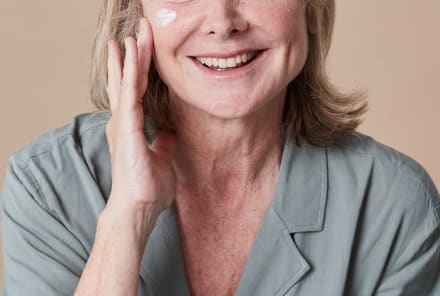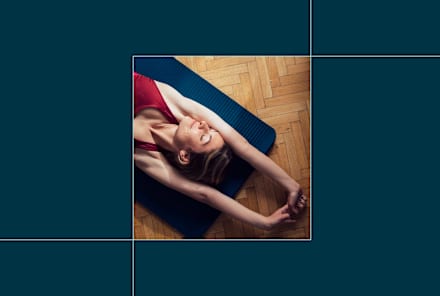Advertisement
11 Natural, Science-Backed Tips To Lower Your Blood Pressure

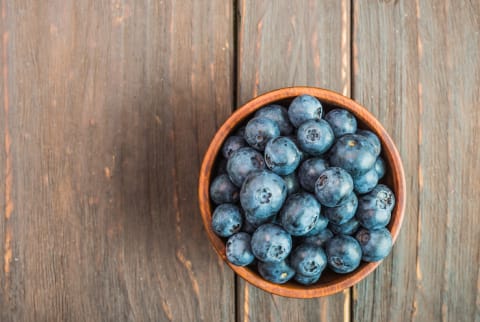
High blood pressure has earned the name “silent killer." Sadly, it’s well deserved.
Heart disease, sexual dysfunction, stroke, kidney failure, and aneurysms can all result from elevated blood pressure. And with 1 out of every 3 Americans suffering from this malady, its impact is huge.
Of course, there are many medications that can be prescribed for hypertension. But for a good number of people, elevated blood pressure is a lifestyle disease related to poor nutrition, sedentary lifestyle, stress, poor sleep, obesity, smoking and other factors that can be controlled or eliminated.
In other words, freedom from medication is an attainable goal for many. The natural approaches that I recommend here work for all ages, aren't expensive, and don’t carry the side effects common with prescription medication:
1. Aromatherapy
2. Probiotics
The role of our gut health, or microbiome, has dominated medical news over the last five years. And in several studies, probiotics were shown to alter blood pressure. I recommend taking a high quality broad-spectrum daily probiotic with over 10 million colony forming units and eating fermented foods, like sauerkraut and pickles.
3. Asparagus
You’re probably familiar with the famous odor of urine after eating asparagus. But did you also know that the hundreds of active chemicals called cladophylls in this popular vegetable also have positive effects on the heart? Eating asparagus can help lower blood pressure while also packing in lots of fiber, vitamins, minerals and phytonutrients.
4. Meditation
Meditation has been growing in popularity, and research shows that regular practice is associated with a drop in blood pressure. There are many different styles, so you can find one that works for you. Join in the movement.
5. Yoga
While meditation is certainly a part of this, the movement and sweating that come with yoga practice offer added health benefits. Best of all, this ancient practice is suitable for both the young and old, and studies suggest that yoga can help to lower blood pressure.
6. Flaxseed
Flaxseed is a rich source of alpha linolenic acid that can reduce inflammation, plus help lower blood pressure. I recommend adding two tablespoons of ground flax to your daily diet — you can work it in to everything from smoothies to yogurt and baked goods.
7. Beetroot
Beets are a rich source of nitrates and can help relax blood vessels, resulting in lower blood pressure. Whether cooked or juiced, the impact of beetroot juice on blood pressure is worth exploring.
8. Blueberries
This popular berry is another great source of nitric oxide and can help lower blood pressure. The additional benefits of blueberries on brain and bowel health make them a true superfood.
9. Sauna
Whether dry, steam or infrared, saunas have been shown to offer some heart benefits . In fact, studies have found that sauna therapy can lower the risk of hypertension and offer physical benefits similar to those achieved from activities like walking.
10. Sleep therapy
Poor sleep can result in inflammation, stiffer arteries and elevated blood pressure. Identifying and treating sleep apnea, avoiding stimulants before bed, applying sleep hygiene methods like dark and cold rooms, and limiting bright lights for at least 30 minutes before sleep can all assist in better sleep and lower blood pressure.
11. Consider the Daniel Fast
This ancient program, rooted in the Bible, involves eating only fruits, vegetables, legumes, nuts, seeds, and whole grains for 21 days. One study found impressive improvements in cardiovascular health for both men and women, including a significant drop in blood pressure.
The Bottom Line
Time-tested lifestyle factors — eating a diet rich in brightly colored fruits and vegetables, exercising, maintaining proper body weight and avoiding smoking — are the foundation of blood pressure control. Focus your effort on achieving a daily practice of these core habits.
As Thomas Sydenham, MD said 400 years ago, "man is as old as his arteries." You now have eleven steps to help you remain young at heart and body.

Dr. Joel Kahn is the founder of the Kahn Center for Cardiac Longevity. He is a summa cum laude graduate of the University of Michigan School of Medicine and is a professor of medicine at Wayne State University School of Medicine. He is owner of GreenSpace Cafe in Ferndale, Michigan. His books, The Whole Heart Solution, Dead Execs Don't Get Bonuses, and Vegan Sex are all available for sale now.
More from the author:
Functional Nutrition Training
Check out Functional Nutrition Coaching
A cutting-edge nutrition deep dive taught by 20+ top health & wellness experts
Learn moreMore from the author:
Functional Nutrition Training
Check out Functional Nutrition Coaching
A cutting-edge nutrition deep dive taught by 20+ top health & wellness experts
Learn more
Dr. Joel Kahn is the founder of the Kahn Center for Cardiac Longevity. He is a summa cum laude graduate of the University of Michigan School of Medicine and is a professor of medicine at Wayne State University School of Medicine. He is owner of GreenSpace Cafe in Ferndale, Michigan. His books, The Whole Heart Solution, Dead Execs Don't Get Bonuses, and Vegan Sex are all available for sale now.
Watch Next
Enjoy some of our favorite clips from classes
Enjoy some of our favorite clips from classes
What Is Meditation?
Mindfulness/Spirituality | Light Watkins
Box Breathing
Mindfulness/Spirituality | Gwen Dittmar
What Breathwork Can Address
Mindfulness/Spirituality | Gwen Dittmar
The 8 Limbs of Yoga - What is Asana?
Yoga | Caley Alyssa
Two Standing Postures to Open Up Tight Hips
Yoga | Caley Alyssa
How Plants Can Optimize Athletic Performance
Nutrition | Rich Roll
What to Eat Before a Workout
Nutrition | Rich Roll
How Ayurveda Helps Us Navigate Modern Life
Nutrition | Sahara Rose
Messages About Love & Relationships
Love & Relationships | Esther Perel
Love Languages
Love & Relationships | Esther Perel
What Is Meditation?
Box Breathing
What Breathwork Can Address
The 8 Limbs of Yoga - What is Asana?
Two Standing Postures to Open Up Tight Hips
How Plants Can Optimize Athletic Performance
What to Eat Before a Workout
How Ayurveda Helps Us Navigate Modern Life
Messages About Love & Relationships
Love Languages
Advertisement
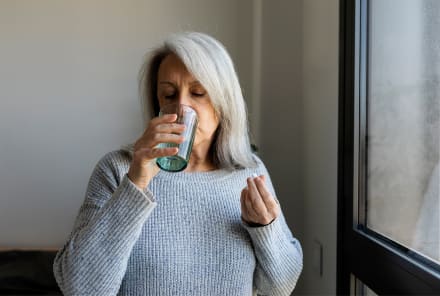
This Supplement May Remarkably Benefit Those With A High Risk Of Alzheimer’s
Molly Knudsen, M.S., RDN

Want To Be Metabolically Healthy? Study Shows An Underutilized Approach
Molly Knudsen, M.S., RDN
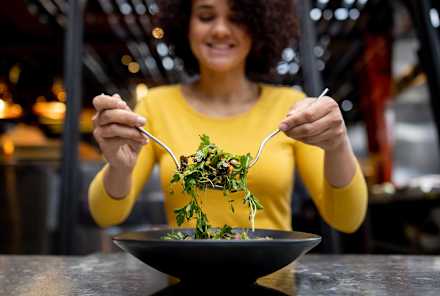
Don’t Eat A Lot Of Meat? Make Sure You Take This Supplement Daily
Molly Knudsen, M.S., RDN
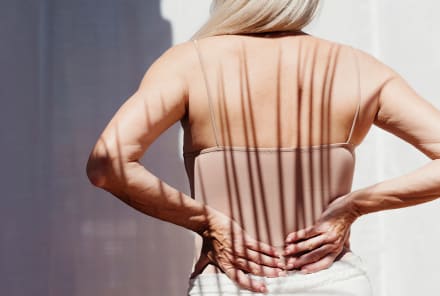
Study Reveals 2 Habits That Are Early Signs Of Muscle Loss In Women
Molly Knudsen, M.S., RDN

This Supplement May Remarkably Benefit Those With A High Risk Of Alzheimer’s
Molly Knudsen, M.S., RDN

Want To Be Metabolically Healthy? Study Shows An Underutilized Approach
Molly Knudsen, M.S., RDN

Don’t Eat A Lot Of Meat? Make Sure You Take This Supplement Daily
Molly Knudsen, M.S., RDN

Study Reveals 2 Habits That Are Early Signs Of Muscle Loss In Women
Molly Knudsen, M.S., RDN

This Supplement May Remarkably Benefit Those With A High Risk Of Alzheimer’s
Molly Knudsen, M.S., RDN

Want To Be Metabolically Healthy? Study Shows An Underutilized Approach
Molly Knudsen, M.S., RDN

Don’t Eat A Lot Of Meat? Make Sure You Take This Supplement Daily
Molly Knudsen, M.S., RDN

Study Reveals 2 Habits That Are Early Signs Of Muscle Loss In Women
Molly Knudsen, M.S., RDN

This Supplement May Remarkably Benefit Those With A High Risk Of Alzheimer’s
Molly Knudsen, M.S., RDN

Want To Be Metabolically Healthy? Study Shows An Underutilized Approach
Molly Knudsen, M.S., RDN

Don’t Eat A Lot Of Meat? Make Sure You Take This Supplement Daily
Molly Knudsen, M.S., RDN

Study Reveals 2 Habits That Are Early Signs Of Muscle Loss In Women
Molly Knudsen, M.S., RDN
